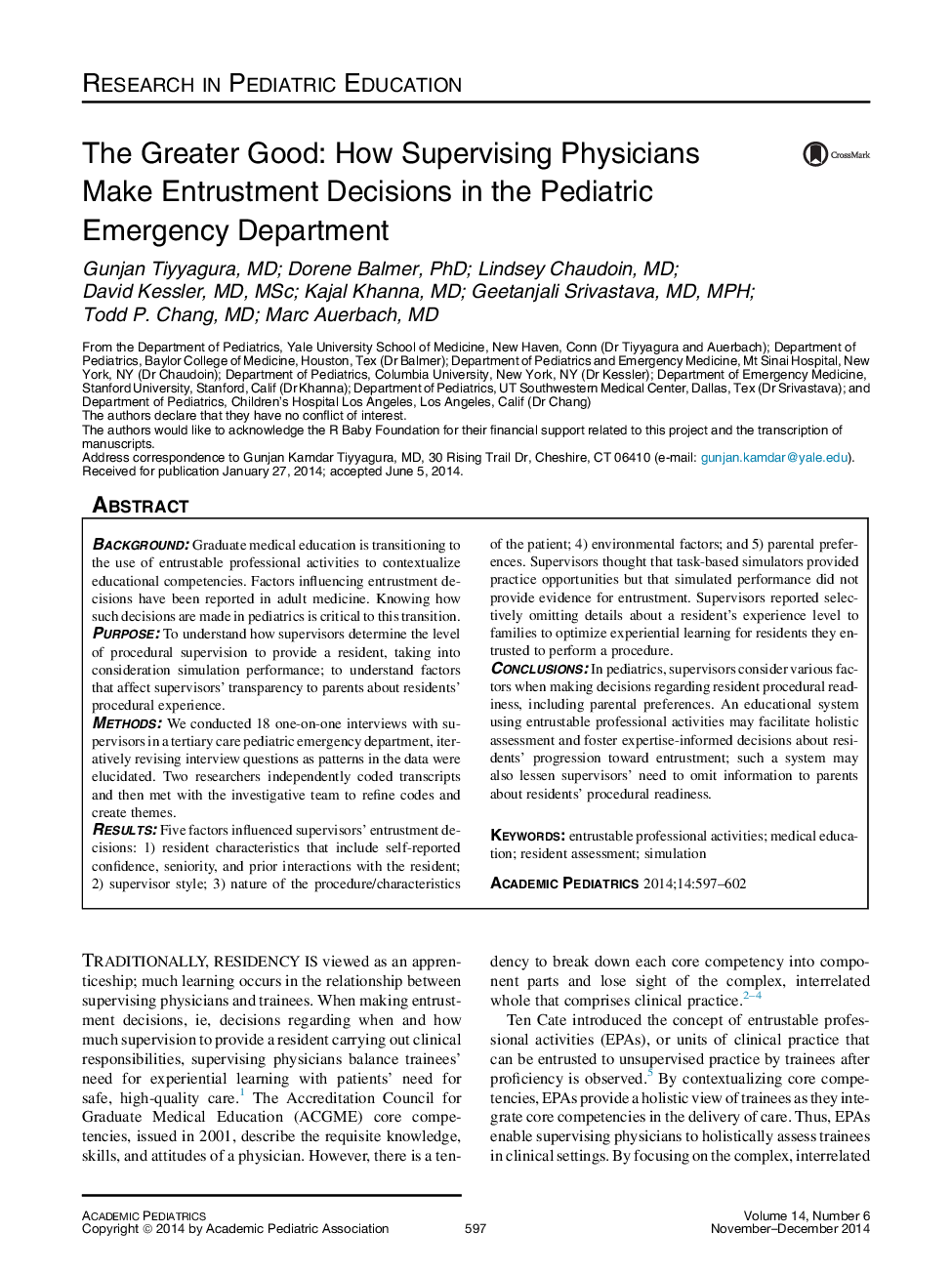| کد مقاله | کد نشریه | سال انتشار | مقاله انگلیسی | نسخه تمام متن |
|---|---|---|---|---|
| 4139300 | 1272201 | 2014 | 6 صفحه PDF | دانلود رایگان |
BackgroundGraduate medical education is transitioning to the use of entrustable professional activities to contextualize educational competencies. Factors influencing entrustment decisions have been reported in adult medicine. Knowing how such decisions are made in pediatrics is critical to this transition.PurposeTo understand how supervisors determine the level of procedural supervision to provide a resident, taking into consideration simulation performance; to understand factors that affect supervisors' transparency to parents about residents' procedural experience.MethodsWe conducted 18 one-on-one interviews with supervisors in a tertiary care pediatric emergency department, iteratively revising interview questions as patterns in the data were elucidated. Two researchers independently coded transcripts and then met with the investigative team to refine codes and create themes.ResultsFive factors influenced supervisors' entrustment decisions: 1) resident characteristics that include self-reported confidence, seniority, and prior interactions with the resident; 2) supervisor style; 3) nature of the procedure/characteristics of the patient; 4) environmental factors; and 5) parental preferences. Supervisors thought that task-based simulators provided practice opportunities but that simulated performance did not provide evidence for entrustment. Supervisors reported selectively omitting details about a resident's experience level to families to optimize experiential learning for residents they entrusted to perform a procedure.ConclusionsIn pediatrics, supervisors consider various factors when making decisions regarding resident procedural readiness, including parental preferences. An educational system using entrustable professional activities may facilitate holistic assessment and foster expertise-informed decisions about residents' progression toward entrustment; such a system may also lessen supervisors' need to omit information to parents about residents' procedural readiness.
Journal: Academic Pediatrics - Volume 14, Issue 6, November–December 2014, Pages 597–602
